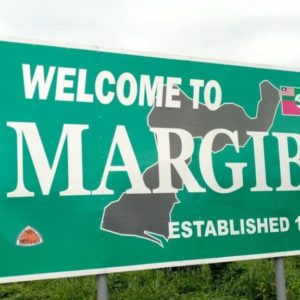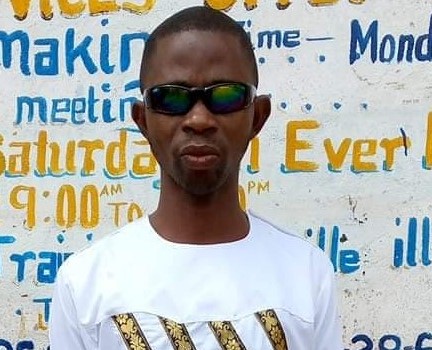PHOTO: J. Moses Kpaklah
By Abraham Kollie (Internews PwD Reporting Fellow)
In Liberia, like in other countries in Africa and the rest of the world, there is an age old perception that living with disability usually renders a person useless to society and automatically makes him/her a burden on the community.
As a country listed amongst the world’s poorest countries, Liberian is both culturally and structurally discriminative against persons living with disabilities. It is a country where a vast majority of the people live on less than a dollar per day, and the struggle for survival has its worse toll on the physically challenged and visually impaired, in most or all cases.
“PWDs were discriminated against in Liberia and to this end, Liberia has adopted policies and legal frameworks to ensure the rights of PWDs are respected and protected. The government has taken administrative, legal, and economic measures that indicate the country’s commitment to improving the rights of PWDs,” says Initial report submitted by Liberia under article 35 of the Convention, due in 2014 * [Date received: 1 October 2019]
Physical infrastructures like public buildings and public utilities including schools, hospitals, offices, public transportation, etc. are structured and or designed in ways that are non-accommodating to persons with disabilities. Thus, most persons who unfortunately live with disabilities in such a harsh environment can only make a living by surviving as street beggars.

This Internews’ PwD Fellowsip Reporter has been following the life of J. Moses Kpaklah, a visually impaired Liberian who has defied the odds presented by the society and has been making positive contributions to his community in particular and country at large.
Born and raise as a kid in Totota, Bong County, growing up in the suburbs of Monrovia and then moving on to Kakata, Margibi County in Western Liberia, J Moses Kpaklah has had his fair share of the harsh realities of growing up in the Liberian society as a PwD. Notwithstanding, he has disproved the negative perceptions held by the society against PwDs, and has developed himself into a meaningful and resourceful citizen.
Breaking the myth
Contrary to the general perception that when you’re disabled (visually impaired or physically challenged), you have no contribution to make in the society, J. Moses Kpaklah has moved on with adjusting to normal societal life. Born as an able and societally fit child on 11 October 1987 in Totota, Bong County, Moses’ life made a dramatic turn when he lost his sight owing to illness in 2001. However, after a long period of grief and sorrow, Moses decided that the pity-party was not the way forward but rather to face life head-on. He then enrolled in the Liberia School for the Blind in 2007 and later completed Six Grade in 2011.
He accordingly expressed his desire to enter into a general school system and subsequently enrolled at the Amos T. Taybior Institute in the Red-Light, Paynesville area. He remained a student at that institution from 2012 to 2016 before traveling to the United States where he completed the 12th Grade.
Moses recounted his experiences and challenges to the Internews Fellow during an interview, reflecting on all the forms of discrimination and bullying he had to endure along the way. While in the United States of America, Moses enrolled in the Jefferson Community College in the State of New York and earned a Bachelor of Science Degree in Education.
After his return to Liberia, he has been pursuing an online Master’s of Science degree in the field of Education. In 2019, he established the Christian Association of Visually Impaired People in Margibi, an organization aimed at providing education and rehabilitation services to people living with disabilities, particularly the visually impaired.
Through his organization, Moses is touching the lives of persons with disabilities in that western Liberian region.
In conversation with this Reporter, Moses said his organization over the years has been able to acquire a modern rudimentary staff building and four elementary classrooms, with the capacity of holding over thirty (30) visually impaired school-going children, including children suffering other forms of disabilities.
According to him, parents and guardians of beneficiary students have expressed gratitude to his organization admitting that the contribution of the school is helping to bring total relief to their children. Some parents whose children got their early education from the school are now on the way to acquiring high school diplomas from various high schools in Margibi and its environs, while others are attending various universities.
Proud of achievement so far
Proud of what he has so far been able to achieve, Moses said: “People have called us all types of names, thinking that we, PwDs cannot contribute to society. But we want to make this categorically clear, that people living with disabilities in Liberia, especially Margibi County, are contributing to the larger society.”
He adds: “Even though I’m visually impaired (Blind), but I’m doing a Master’s program currently and also giving back to my community by teaching especially young children who have lost their sight.” Speaking further Kpaklah narrated that his organization has also been involved in advocacy to ensure that the voices of people living with disabilities are heard. He named some of the successes from his advocacy campaigns as the Disabled Community’s involvement in major decision-making processes in Margibi County. This includes participation in the County Council Sittings. The County Council Sitting is the major County Stakeholders’ Meeting where critical community discussions are discussed.”
Moses Kpaklah continues to make numerous contributions to his local community in his effort to creating the requisite space for persons living with disabilities in Margibi County.
“Another contribution we are making is the awareness being raised by us seeking for equal opportunities through a Radio program and by God’s grace, our community is part of major decisions marking in Margibi; whereas before we (PwDs) were overlooked by the county’s authority,” he explained.
Through a radio program that is aired weekly in the county, he speaks out and seeks the welfare of persons with disabilities.
He has a lot of praise for the local media for giving airtime to do his radio program titled, “Forum on the Rights of Persons with Disabilities.” It’s usually presented by him (Kpaklah). The program aims at raising awareness on the need for inclusion of PwDs and equal opportunities for those with disabilities.
Moses has also contributed to the Margibi IT School System, providing volunteer services in the area information Technology to not only disabled groups but nondisabled communities as well. Currently, he serves as a volunteer teacher at the Christian Association of the Disabled in Margibi County, where he plays dual role as Principal and Teaching without pay.
“We have been able to provide some voluntary services to the same people discriminating against us based on our experiences and academics achievements over the years, even though we are not being paid for our services.”
His parting words reinforce the enormous contributions that PwD have made, are making and are capable of making in the future to the development of Liberia and the world at large.
“We again want to inform Liberians that people living with disabilities are greatly contributing to the community than some of our compatriots. We look forward to the implementation of the inclusive education policy where people with disabilities can acquire some alternative life skills for their social and economic development,” Moses asserted.
Publication of this article was made possible with support from Internews Liberia Inclusive Media Project.

